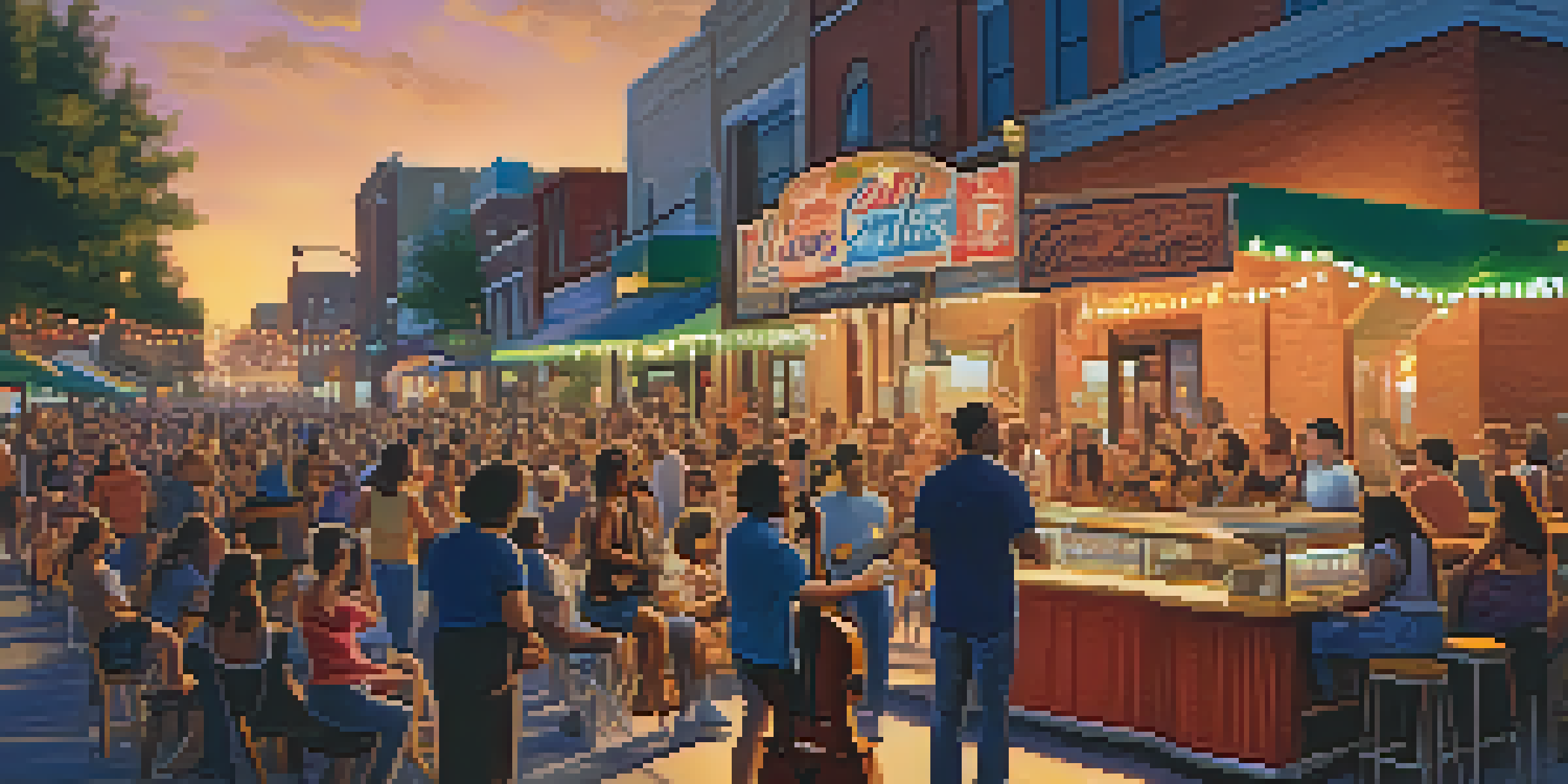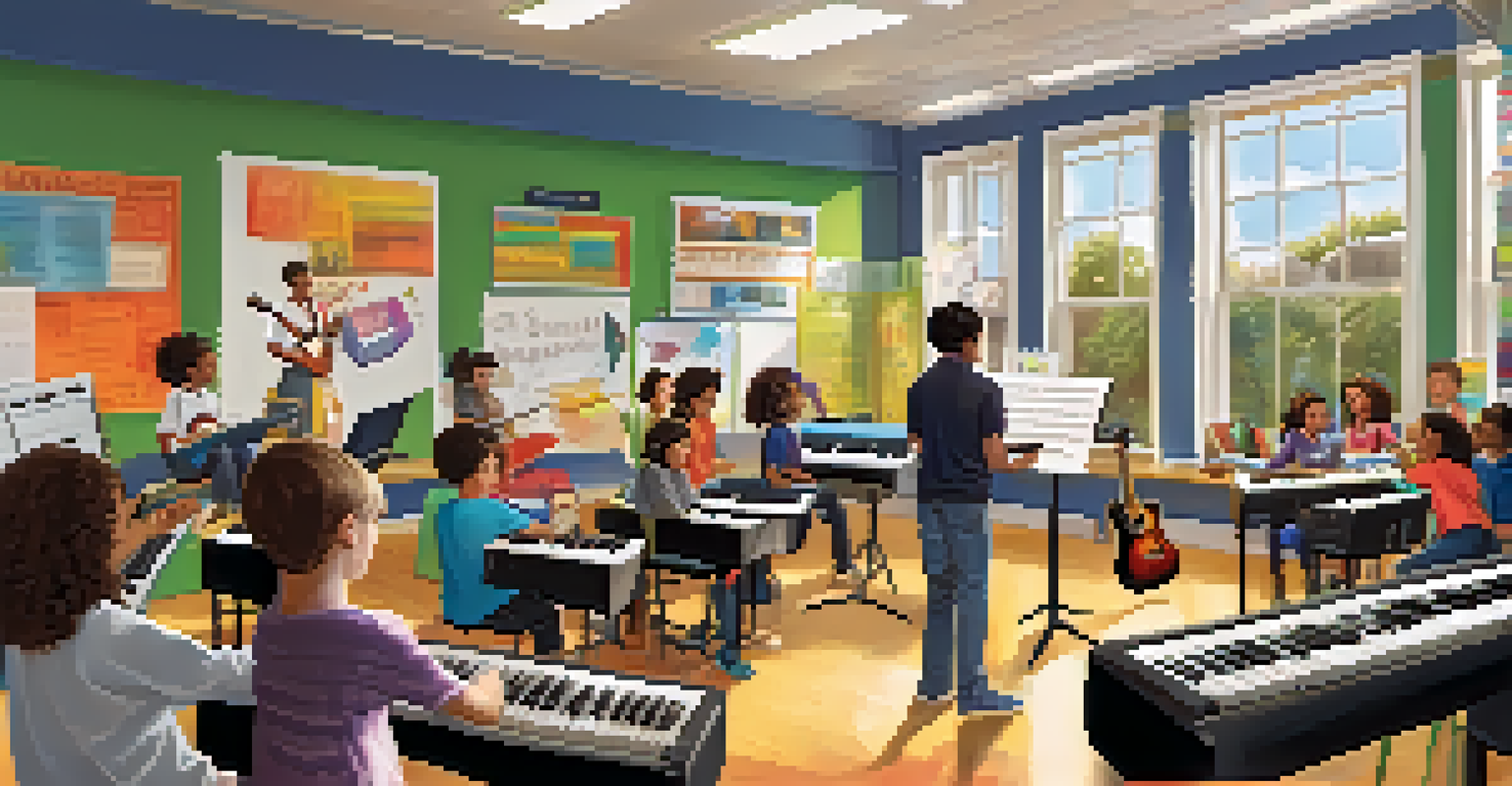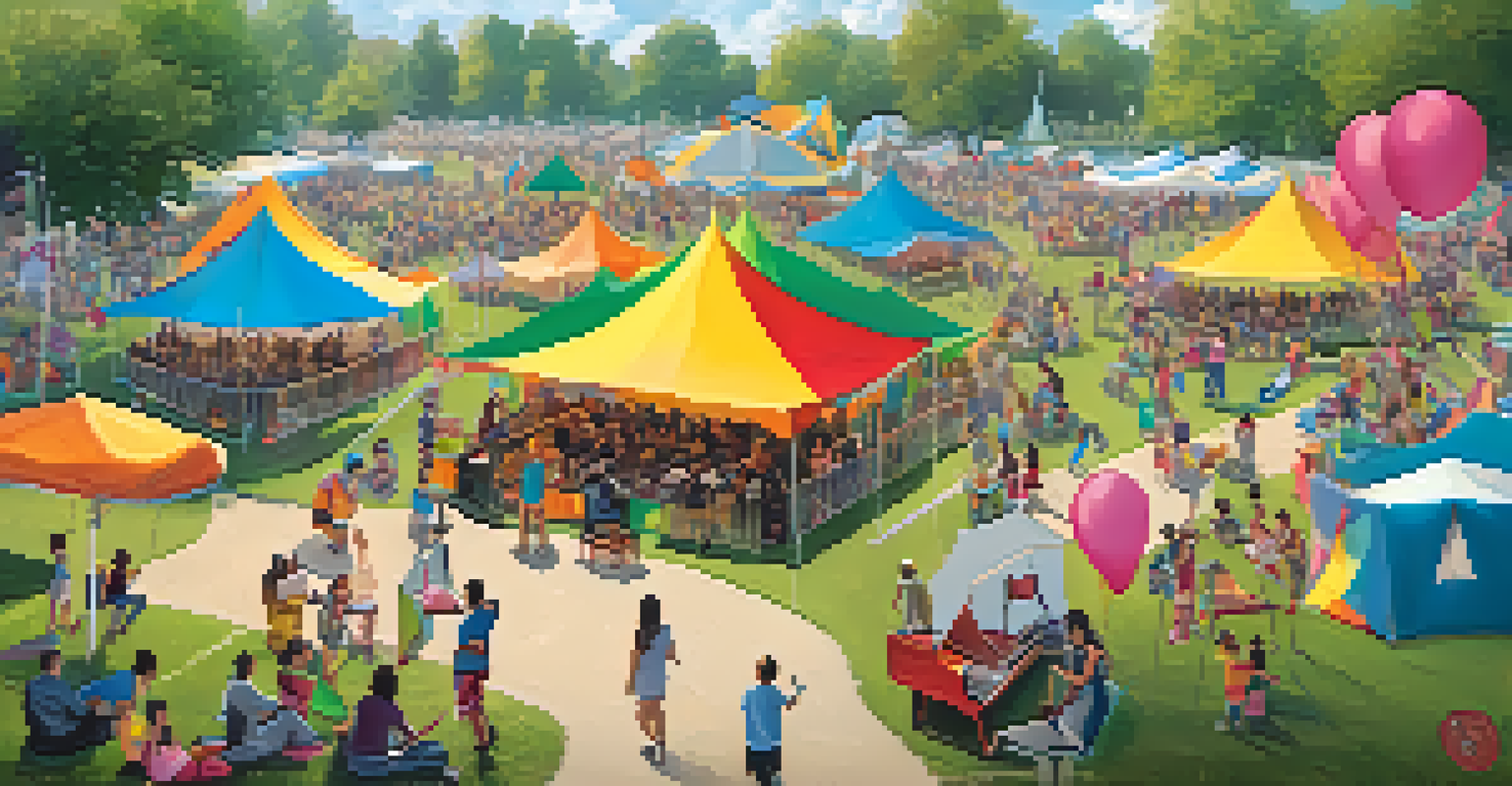Leveraging Austin's Music Scene for Educational Opportunities

Understanding Austin's Rich Musical Heritage
Austin is often dubbed the 'Live Music Capital of the World,' boasting a diverse range of genres that reflect its cultural richness. From blues and rock to country and hip-hop, the city's music scene offers a unique backdrop for educational initiatives. This vibrant atmosphere not only entertains but also fosters creativity and innovation among students.
Music can change the world because it can change people.
The history of music in Austin is deeply woven into its identity, with iconic events like South by Southwest (SXSW) showcasing both emerging and established artists. This dynamic environment serves as a living classroom, where students can learn about the evolution of music and its impact on society. Engaging with local musicians and attending live performances can inspire learners and broaden their horizons.
By tapping into this musical heritage, educators can create experiential learning opportunities that resonate with students. Whether it's through field trips to live shows or collaborative projects with local artists, the potential for enriching educational experiences is vast in Austin's music scene.
Integrating Music into the Curriculum
Incorporating music into various subjects can enhance student engagement and retention. For instance, history lessons can be accompanied by the sounds of different musical eras, allowing students to experience the culture of the time firsthand. This multi-sensory approach not only makes learning more enjoyable but also helps students connect with the material on a deeper level.

Creative projects, such as writing lyrics or composing songs, can be used in language arts classes to encourage self-expression and critical thinking. By analyzing song lyrics, students can explore themes, vocabulary, and poetic devices, making literature feel more relatable. This method transforms traditional learning into an interactive experience that captivates students’ interests.
Austin's Music Enriches Education
The vibrant music scene in Austin offers unique opportunities for experiential learning that inspire creativity and broaden students' horizons.
Furthermore, science classes can explore the physics of sound and music production, blending artistic creativity with scientific inquiry. This kind of interdisciplinary approach not only makes lessons more dynamic but also prepares students for real-world applications of their knowledge, opening doors to potential careers in music and technology.
Collaborating with Local Musicians and Organizations
Austin is home to countless talented musicians eager to share their craft with the community. Schools and educational institutions can benefit greatly from partnerships with these artists, who can offer workshops, masterclasses, and mentorship programs. By collaborating with local talent, students gain insights into the music industry and learn skills that extend beyond the classroom.
The music you listen to becomes the soundtrack of your life.
Involving musicians in educational settings can also help demystify the creative process. When students see professionals at work, they are more likely to feel inspired to explore their own artistic interests. This first-hand experience fosters a sense of community and encourages students to pursue their passions, whether in music or other fields.
Moreover, local music organizations often have resources and programs designed specifically for educational purposes. By leveraging these partnerships, schools can provide students with unique opportunities to engage with music, participate in competitions, and even perform in renowned venues throughout Austin.
Creating Community Events Focused on Music Education
Community events centered around music can serve as powerful platforms for education. Festivals, workshops, and concerts can be designed with educational components, allowing students to learn while enjoying live performances. These gatherings provide a space for collaboration, where students can showcase their talents and learn from their peers.
For example, hosting a music festival that includes workshops on songwriting, instrument techniques, and the business of music can attract both local artists and aspiring musicians. Such events can foster a sense of belonging and encourage students to take an active role in their education. The excitement of performing in front of an audience can also build confidence and stage presence.
Collaboration with Musicians
Partnering with local musicians provides students with valuable insights and hands-on experience, enhancing their understanding of the music industry.
By integrating educational elements into these events, communities can create an enriching atmosphere that celebrates both music and learning. This synergy not only benefits students but also strengthens community ties as families and local organizations come together to support the arts.
Utilizing Technology to Enhance Music Education
In today's digital age, technology plays a vital role in education, including music learning. Online platforms and software can provide students with access to music theory lessons, production tools, and even virtual instruments. This flexibility allows learners to engage with music in ways that suit their individual needs and learning styles.
Additionally, students can explore music creation through apps and software that promote collaboration and creativity. For instance, using digital audio workstations (DAWs) can help students produce their own tracks, fostering hands-on experience with music production. This not only makes learning more relevant but also prepares students for careers in the evolving music industry.
Moreover, technology enables remote collaboration, allowing students to connect with musicians and educators from around the world. This global perspective can broaden their understanding of music and inspire them to think creatively about their own musical journeys.
The Role of Music in Mental Health and Well-being
Music has long been recognized for its therapeutic benefits, particularly in promoting mental health and well-being. Engaging with music, whether through listening or creating, can serve as an emotional outlet for students, helping them process feelings and experiences. This is especially important in educational settings where stress and anxiety can be prevalent.
Incorporating music into school programs can help create a supportive environment where students feel safe to express themselves. Activities like group singing or music therapy sessions can promote teamwork, build friendships, and enhance overall morale. The positive effects of music on mental health can lead to improved focus and academic performance.
Music and Mental Well-being
Integrating music into school programs can promote mental health, allowing students to express emotions and build resilience through creative engagement.
By recognizing the importance of mental well-being, educators can leverage music as a tool for resilience. Providing students with opportunities to explore their emotions through music can not only enhance their educational experience but also equip them with coping strategies for life's challenges.
Showcasing Student Talent through Performances
One of the most rewarding aspects of music education is the opportunity for students to showcase their talents. Organizing performances, whether in school or at community events, allows students to gain confidence and receive valuable feedback. These experiences not only celebrate their hard work but also inspire others to pursue their own musical passions.
Performance opportunities can range from talent shows to open mic nights, providing diverse platforms for students to share their music. These events foster a sense of community and encourage collaboration among students, as they work together to create memorable performances. The excitement of performing can have a lasting impact on students, motivating them to continue exploring their musical abilities.

Furthermore, showcasing student talent can strengthen community ties, as families and local residents come together to support young artists. This not only enriches the community but also reinforces the value of music education, highlighting its role in personal growth and development.